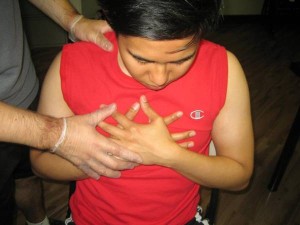It is a known fact that heart diseases have been responsible for thousands of deaths every year. Heart disease is basically a classification that includes various conditions that affect the heart and the blood vessels. These conditions include high blood pressure, heart attacks, coronary artery disease and atherosclerosis. Take note that women can experience varying symptoms of heart disease than men and these indications can be missed or misinterpreted.
Indications of coronary artery disease
The usual indication of coronary artery disease is angina or chest pain which can be easily mistaken for indigestion or heartburn. Women who experience angina can describe several sensations in the chest including fullness, tightness, aching, heaviness or numbness. Occasionally, angina is also experienced in the left shoulder, arms, neck, jaw and back. Angina can also indicate an impending heart attack, thus women who experience these symptoms should seek emergency care as soon as possible. The other usual symptoms of coronary artery disease include erratic heartbeat and shortness of breath.

Indications of high blood pressure
High blood pressure or hypertension has been known as the silent killer since it rarely triggers any overt symptoms until the blood pressure is too high. In some women who have elevated blood pressure, they exhibit non-specific symptoms such as fatigue, headache, anxiety, confusion, dizziness and excessive perspiration.
In severe cases when the blood pressure reaches high levels, it can lead to renal failure, heart attack, stroke or sudden death. The other critical symptoms include numbness or tingling in the feet and hands, chest pain, difficulty speaking, muscle tremors, severe nosebleeds, blurry vision, coughing up blood, weakness of the face or one side of the body or the sudden onset of a severe headache without any cause.
Indications of atherosclerosis
Atherosclerosis is a condition in which the arteries harden and occurs once the fatty deposits or plaques buildup in the arterial walls, thus limiting the flow of blood. The condition rarely causes apparent symptoms until the arteries are severely blocked. Once this occurs, the limited flow of blood to the affected areas can trigger serious health issues or even death.
Once the flow of blood is limited to the brain or heart, symptoms such as weakness, dizziness or abrupt numbness can occur which can lead to a stroke or heart attack. Women are likely to experience the non-traditional symptoms of stroke particularly disorientation, confusion and loss of consciousness as well as seizures, fainting or even coma. In some cases, atherosclerosis develops in the legs, pelvis or arms which results to a condition called as peripheral artery disease. The reduced flow of blood to these areas can lead to pain, numbness, infection and diminished functionality.
Indications of a heart attack
It is important to note that women are likely to suffer symptoms not related to chest pain prior to a heart attack. Most of these symptoms can appear subtle unlike with the crushing chest pain experienced by men during a heart attack. Some of the symptoms include sweating, unexplainable fatigue as well as indigestion, sleep disturbances, nausea, shortness of breath, vomiting, dizziness, anxiety and discomfort in the shoulder, neck, back or abdomen. If you want to learn how to deal with a heart attack, click here.
